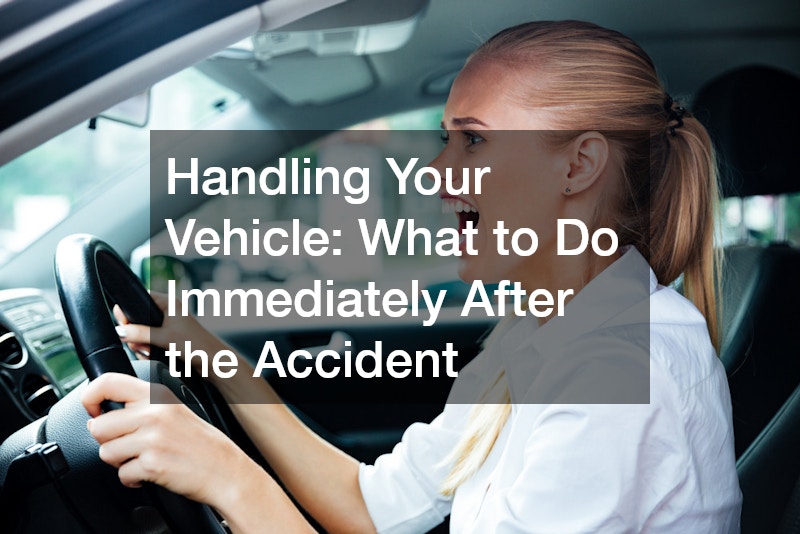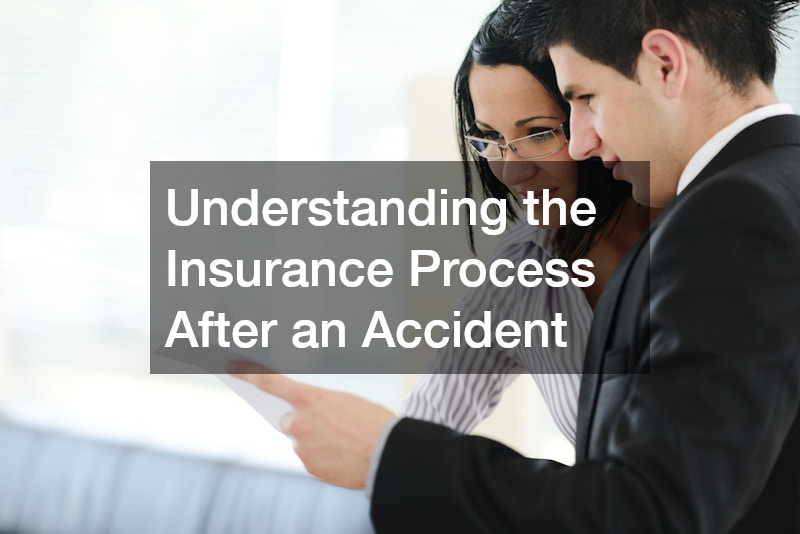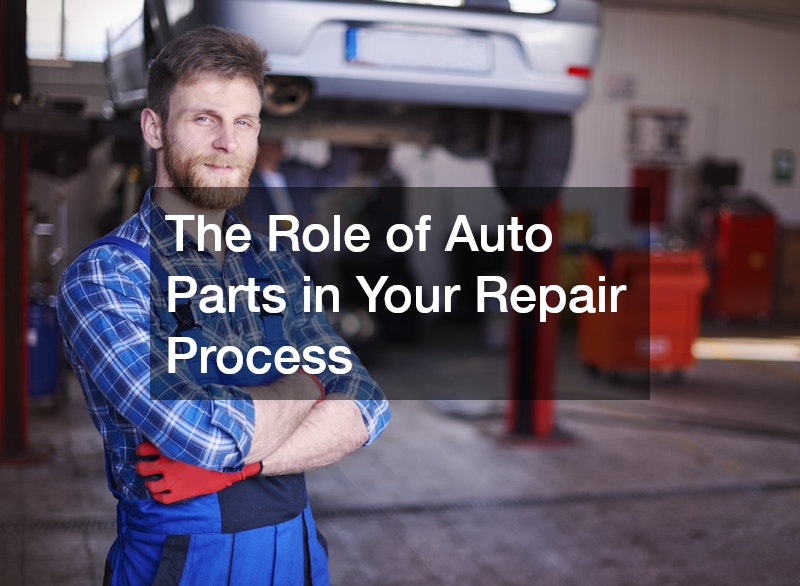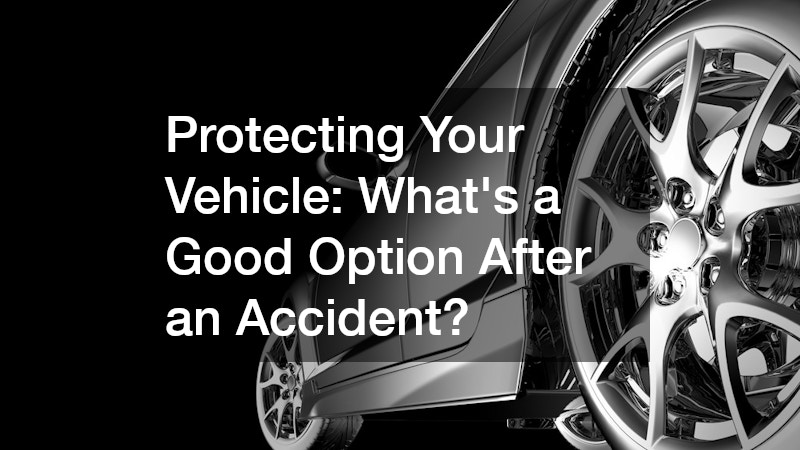
Car accidents can be traumatic events that leave individuals reeling from both physical and emotional impacts. Beyond the immediate shock and fear, navigating the post-accident landscape presents a multitude of challenges that can be overwhelming. In such scenarios, understanding the appropriate steps to take can significantly ease the process of recovery and repair, making it crucial to know your rights and options. Questions arise such as “Should I release my car to the insurance company?” which can influence everything from your financial responsibilities to the repairs needed for your vehicle. This article aims to serve as a comprehensive guide for anyone involved in a car accident, breaking down crucial considerations and actionable steps you should take for a smoother post-accident experience.
Do You Need Legal Help? When to Consult a Professional
After a car accident, one of the first questions to evaluate is whether you need legal consulting from a car accident lawyer. The circumstances surrounding the accident play a significant role in determining if legal assistance is necessary; complex situations involving injuries, fatalities, or disputes over fault typically require professional help. Furthermore, captivating legal advice is vital if there are complications with your insurance company or if you find yourself asking, “Should I release my car to the insurance company?”
When considering the retention of a lawyer, assess the severity of the damages and injuries involved. A specialized car accident lawyer can provide insights into your rights, help negotiate with the other party’s insurer, and guide you through any potential litigation. This legal expertise can often mean the difference between receiving a fair settlement and being taken advantage of by the insurance system.
Ultimately, if you are uncertain about the course of action or feel overwhelmed by the consequences of the accident, consulting with a legal professional is advisable. Not only can they clarify any confusion around the insurance process, but they can also relieve some of the stress involved in dealing with repairs, medical claims, and other necessary actions. Knowing when to seek help can ultimately safeguard your interests and provide you with valuable resources for navigating the aftermath of your accident.

Handling Your Vehicle: What to Do Immediately After the Accident
Following a car accident, it is imperative to know how to handle your vehicle properly. The first step after ensuring everyone’s safety is to secure the accident scene—this may involve calling a local towing company to remove your vehicle if it is blocking traffic or poses a hazard. Upon contacting the towing service, ask for advice on what to do next, while also remembering to document everything about the accident, whether regarding damages or involved parties.
Once your vehicle is towed, you will need to assess the damages since this may influence your decision on whether to release your car to the insurance company for a settlement. Conducting a thorough inspection, when possible, can aid in understanding the extent of damages and may alert you to any hidden issues not immediately apparent. Even if your vehicle appears drivable, problems can arise later, impacting its safety and functionality; thus, repairs should never be overlooked.
Furthermore, exchanging information with the involved parties and documenting anything unusual at the scene is necessary. Always collect insurance details and personal contact information from those involved, as this data will be essential for processing your claims and managing your covered repairs. Being organized from the outset not only facilitates smoother communication but can also bolster your legal standing if disputes arise over damages later on.
Evaluating the Damage: Should You Repair Your Car or Accept a Settlement?
Determining whether to repair your car or accept a settlement involves careful evaluation of the damages sustained during the accident. First and foremost, assess the overall cost of repairs versus the amount your insurance company is willing to pay out. If your car requires extensive auto body repair, it might be prudent to retain the vehicle instead of opting for a settlement that may not fully cover your expenses.
Consider the potential future value of your car. While the immediate goal is to return to the road, understanding how repairs impact your vehicle’s worth is crucial. Repairing your car using high-quality components, possibly sourced from reputable auto collision shops utilizing used auto parts, can preserve its resale value, making it a sound investment in the long run.
On the other hand, if extensive damage renders your car unsafe or unrepairable, accepting the insurance settlement might be your best option. The decision to release your car to the insurance company could lead to a quicker payout, allowing you the opportunity to find a replacement vehicle that better serves your needs. Always weigh the pros and cons carefully, and don’t hesitate to seek a second opinion from a trustworthy auto body shop before making a final decision.

Understanding the Insurance Process After an Accident
Once you’ve reported the accident, it’s essential to understand how the insurance process works. Initially, your insurance company will evaluate the claim, which may include assessing the damages and determining fault. Knowing how to navigate your insurance coverage is vital, especially if you find yourself in the predicament of asking, “Should I release my car to the insurance company?”
As your claim moves forward, you may encounter terms and policies that are beneficial to comprehend. Most insurance companies have established procedures for auto collision claims that include damage estimates, repair shops, and the timeline for assessing vehicle damages. Familiarizing yourself with this process can help set your expectations about settlements and repairs.
Furthermore, be cautious in your communications with the insurance adjusters. It’s in your best interest to document everything clearly, including all interactions and agreements made. This documentation can be crucial should disputes regarding coverage or settlement amounts arise during the claims process, strengthening your position and ensuring a smoother resolution of your case.
When to Seek Professional Help for Safety Concerns
After an accident, safety should remain a top priority, necessitating professional evaluations if you suspect any issues. One critical area to focus on is auto alignment, as misalignment can adversely affect your vehicle’s handling and safety. Consulting a trusted professional will provide reassurance that your vehicle has been evaluated thoroughly and that you are safe to drive it again.
Don’t hesitate to seek a qualified expert whenever you notice unusual handling or increasing vibrations post-accident. Often, even minor accidents can create significant issues with suspension and alignment, which may go unnoticed initially but can lead to more severe problems down the road. Prioritizing safety includes obtaining recommendations for reputable auto alignment services, as proper alignment should ensure your car’s stability and enhance fuel efficiency.
Moreover, if you feel uneasy about addressing repairs or interactions with your insurance company, consider workshops or classes focused on vehicle maintenance and auto safety. Gaining knowledge about how to take care of your vehicle after an accident will empower you to make informed decisions moving forward and help clarify situations where you feel you need further assistance.

The Role of Auto Parts in Your Repair Process
Understanding the role that auto parts play in your repair process is crucial after an accident. Whenever your vehicle requires repairs, deciphering whether to use new parts or consider used auto parts is a decision that can impact both cost and quality. Used parts often come at a lower cost but can still provide value when obtained from reputable vendors, making them a viable option in some situations.
When repairing your vehicle, ensure that the auto parts meet industry safety standards. Failure to use quality parts could compromise your vehicle’s integrity and safety, potentially leading to further accidents or malfunctions down the road. Therefore, consulting with your repair technician about the origins and warranty of used parts can provide peace of mind and ensure reliability during your vehicle’s future operations.
Additionally, maintaining communication with your insurance company on the specifics of the parts used is paramount. While your insurer may have recommendations based on industry standards, qualifying your choices can also affect your claims and potential payouts. If you transition to different suppliers or types of parts, document these decisions clearly to avoid misunderstandings as your insurance process unfolds.
Replacing Damaged Glass: What to Expect from the Insurance Company
When your vehicle sustains glass damage from an accident, it can be frustrating—and knowing what to expect from the insurance company is vital. Initially, contact your insurer to report the damage and inquire about coverage for both auto glass replacement and repair services. Many policies include provisions for glass repairs, so understanding your coverage is critical in determining the next steps.
Once you initiate the process, prepare for an assessment of the damage. The insurance adjuster’s evaluation may include examining windshields, windows, and mirrors to ascertain the extent of the damages. Should you find yourself questioning, “Should I release my car to the insurance company?” know that retaining it might lead to a more favorable resolution tailored to your needs regarding glass repairs.
Moreover, when proceeding with glass repairs, select a reputable auto glass replacement service recommended by your insurer. This ensures that repairs or replacements are done using quality materials that comply with safety regulations. Ensuring that your vehicle meets the necessary safety standards not only guarantees your well-being but also protects your investment for years to come.
Engine Damage: How to Determine Whether It’s Worth Repairing
If you encounter engine damage after an accident, a thorough assessment of the situation is paramount. Begin by getting a qualified technician to conduct a diagnostic check on your engine to identify the specific issues at hand. Given the complexities involved in engine repair, understanding the costs and benefits of repairs relative to your vehicle’s value is critical in making a responsible decision. Additionally, you may find yourself asking, “Should I release my car to the insurance company?”—a question that can further influence your course of action.
Furthermore, before deciding whether it’s worth repairing the engine, consider your vehicle’s age and condition before the accident. For older vehicles with less resale value, substantial investment into engine repairs may not be justifiable. In contrast, for newer cars, investing in engine repair with quality parts may result in a vehicle capable of serving you reliably for years.
Should you find the costs of repairs outweigh the benefits, it may be time to consider alternative options. Getting a second opinion or consulting with your insurance company regarding potential payouts can help you navigate decisions more confidently. Ultimately, it’s beneficial to remain informed and consult with knowledgeable professionals as you dissect the pros and cons of engine repair following an accident.

Protecting Your Vehicle: What’s a Good Option After an Accident?
After experiencing a car accident, protecting your vehicle becomes an essential consideration. One increasingly popular route that drivers have taken is the application of ceramic coatings as a protective measure. Ceramic coatings serve not only as a physical barrier against environmental damage but also help preserve the finish of your vehicle, enhancing its overall longevity and appearance.
Additionally, assessing your vehicle’s protection extends beyond cosmetic upgrades. Consider preventative measures to guard against future accidents, such as installing advanced safety features or enrolling in driving courses. This proactive approach ensures that your driving skills are sharpened while safeguarding your renewed investment.
When contemplating your path forward, don’t hesitate to contact professional services that specialize in vehicle protection. Gathering information about available products and protective measures can provide you with the best options tailored to your situation. Protecting your vehicle isn’t simply a one-time effort but an ongoing commitment to ensure its safety and functionality over time.
Managing Your Car’s Legal and Ownership Status: Transfer of Title After an Accident
After an accident, managing your car’s legal and ownership status is important, particularly regarding the transfer of title. If you decide to accept a payout from your insurance and release your car to them, understanding how to properly transfer the title is crucial. Failing to do so correctly can lead to complications in ownership and potential liabilities in the future.
In many states, title transfer services assist in managing this aspect of post-accident processes. These services can help ensure that all legal requirements are met, protecting you from potential liabilities associated with the vehicle. Therefore, contacting car title transfer services, especially if you decide to hand over the vehicle post-accident, can save you time and headaches later on.
Moreover, if you keep your car and repair it, maintaining accurate records of ownership and repairs executed will play a significant role in the vehicle’s future value. Having a complete paper trail will not only benefit you during resale but can also assist in dealing with insurance in the event of a future claim. By staying organized and thorough, you can ensure a smoother transition post-accident regardless of whether you retain or release your vehicle.
After experiencing a car accident, the considerations, decisions, and processes can feel overwhelming. Understanding whether to seek legal help, how to handle your vehicle post-accident, and the interactions with insurance companies are crucial steps to ensure a smooth recovery. Questions such as “Should I release my car to the insurance company?” highlight the intricacies involved in post-accident situations, emphasizing the importance of making informed decisions.
Furthermore, evaluating your options regarding repair versus settlement, understanding parts sourcing, managing glass replacements, and considering engine repairs are steps essential to maintaining the integrity and value of your vehicle. Adopting a proactive approach by utilizing professional services available for repairs, safety evaluations, and timely transfers of title will safeguard your interests and your vehicle’s longevity. In the aftermath of an accident, remaining informed and prepared can greatly ease the journey forward.
Ultimately, the combination of understanding your rights, exploring your options for repairs or replacements, and when to consult professionals empowers you as a driver. Prioritizing safety, maintaining documentation, and exploring the value of your vehicle leads to a more favorable post-accident experience. If you’re unsure about your next steps, such as “Should I release my car to the insurance company,” taking the time to understand your options can help you make a more informed decision. By taking well-thought-out actions, you can navigate this challenging situation while safeguarding your well-being and protecting your investments.